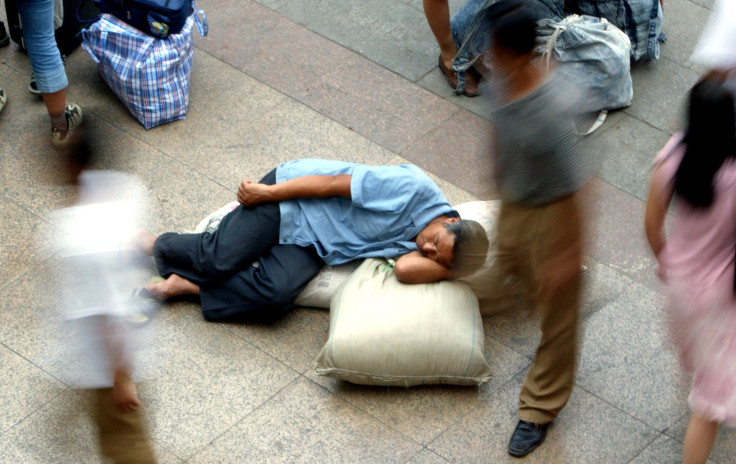China's Hukou Household Registration System Needs A Makeover, But Megacities Like Beijing And Shanghai Are Slow To Reform

China’s hukou household registration system, which classifies citizens as either urban or rural, is outdated and in desperate need of a makeover as the nation undergoes rapid urbanization, but megacities are finding it all but impossible to carry out needed reforms.
The system was conceived to control China’s rapidly rising population and entitles those with a city hukou to public services like education and social security, while rural residents are left without services.
For years the system has kept migrant workers and others with rural hukous second-class citizens. While regulations have been relaxed in recent years in many cities, gaining resident status in the largest cities like Beijing and Shanghai remains severely controlled, the Economic Observer Online reported Sunday.
Special interests and unfounded fears are both holding back reforms for these cities. In 2008, Bai Jingfu, then vice minister of public security, asked, “Beijing has nearly 20 million people now. How can it be possible to take in another 20 million?” implying that urban residency is a rare commodity. It’s been assumed that everyone would immediately flood the cities if they were allowed.
But this fear is largely unfounded. In the short term, cities like Beijing and Shanghai may experience intensified pressure from population increase, but in the long term, the difficulty of finding a job and coping with high living expenses will cause some Chinese to make the rational decision to leave megacities for second-tier towns, relieving the “urban capacity” problem.
Local governments also sometimes view hukou as a bargaining chip. In Beijing in the 1990s, for example, people who bought and invested in property in the city’s satellite towns would be granted residency rights right away. Later on, in need of talent, cities began granting residency rights to those with higher education diplomas, especially from foreign universities.
It has long been argued that free movement within one’s country should be an equal right for every citizen, and internal controls have been deemed unfair. Residents of megacities are also worried that their resources could be taken away by the influx of people from other places, according to the Economic Observer Online.
In the interests of gradual reform, Shanghai has taken an important step ahead of Beijing. In July, the commercial center introduced a “credit settling” system, allowing migrant workers who have “legitimate steady residences” and “legitimate steady jobs” the right to gain credits toward their applications for Shanghai hukous. Still far from comprehensive, the arrangement represents at least a transparent system that potential applicants can follow.
© Copyright IBTimes 2025. All rights reserved.





















